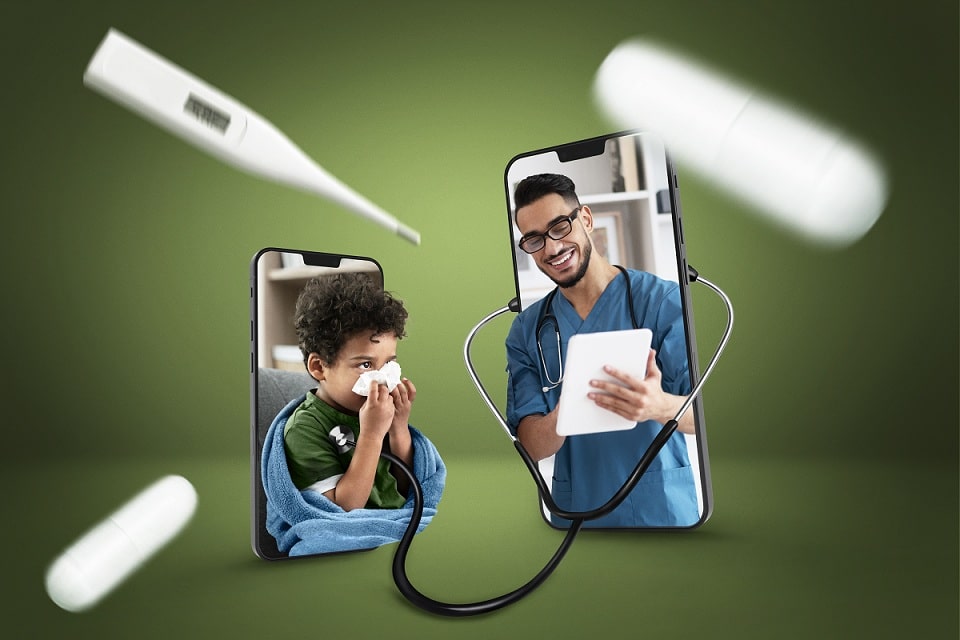In 2025, health-tech mobile apps have become essential tools for managing personal health. These apps offer innovative solutions for fitness tracking, mental well-being, medication management, and more, all accessible from your smartphone. Whether you’re aiming to improve your fitness, manage a chronic condition, or enhance your mental health, there’s an app designed to meet your needs.
6 Top Health-tech Mobile Apps of 2025
Table of Contents
1. Fitness Tracker Apps
Modern fitness tracker apps go beyond counting steps. They integrate with wearable devices to monitor heart rate, sleep patterns, and even stress levels. Apps like Fitbit and Strava provide personalized workout plans, real-time feedback, and community challenges to keep users motivated. These tools help users set achievable goals and track progress over time, promoting a healthier lifestyle.
2. Medication Reminder Apps
For individuals managing multiple medications, reminder apps are invaluable. Apps such as Medisafe send timely alerts for medication intake, track adherence, and even notify caregivers if a dose is missed. Some apps also provide information about drug interactions and refill reminders, ensuring users stay on top of their treatment plans.
3. Mental Health Support Apps
Mental health apps have evolved to offer comprehensive support. Platforms like Headspace and Calm provide guided meditation, breathing exercises, and sleep aids. Additionally, apps such as Woebot use AI to offer cognitive-behavioral therapy techniques, helping users manage anxiety and depression. These tools offer accessible mental health resources anytime, anywhere.
4. Telemedicine Platforms
Telemedicine apps have transformed healthcare accessibility. Services like Teladoc and Amwell allow users to consult with healthcare professionals via video calls, receive prescriptions, and manage chronic conditions remotely. This convenience reduces the need for in-person visits and provides timely medical advice.
5. Nutrition Guide Apps
Nutrition apps assist users in making informed dietary choices. MyFitnessPal and Lifesum offer meal tracking, calorie counting, and personalized nutrition plans. These apps often include barcode scanners for easy food logging and provide insights into nutritional content, helping users maintain balanced diets aligned with their health goals.
6. Sleep Tracker Apps
Quality sleep is crucial for overall health. Sleep tracker apps like Sleep Cycle and AutoSleep monitor sleep patterns, detect disturbances, and provide recommendations for improving sleep quality. Some apps integrate with wearable devices to offer detailed analyses, helping users establish better sleep routines.
Benefits of Having Health-tech Mobile Apps
1. Convenience
Access to health resources and services anytime, anywhere—right from your smartphone—saves time and effort for both patients and caregivers.
2. Improved Monitoring
Track fitness levels, medication intake, mental health, nutrition, and sleep in one place, allowing users to identify patterns and make better lifestyle decisions.
3. Enhanced Adherence
Reminders, alerts, and educational content help users stick to treatment plans and daily routines, which is vital for managing chronic conditions effectively.
4. Accessibility
Telemedicine apps bridge the gap for people in rural or underserved areas, making expert medical care available without long travel or waiting times.
5. Empowerment
Users feel more in control of their health by accessing personalized tools and real-time data, leading to greater confidence in managing their well-being.
6. Personalization
These apps tailor suggestions, workout routines, meal plans, or mental health tips based on each person’s data and health goals, making them more effective.
7. Supportive Communities
Mental health and fitness apps often include forums or group challenges where users can share experiences and motivate one another, reducing feelings of isolation.
8. Preventive Care
Regular tracking helps detect issues early—before they become serious—encouraging healthy habits and reducing long-term health risks.
9. Cost-Effective
Many apps offer free or affordable features, helping users avoid frequent clinic visits and high healthcare costs while still receiving support.
10. Overall Well-being
By combining mental, physical, and emotional care in one platform, users experience a more balanced lifestyle and improved day-to-day energy and focus.
Final Words
Health-tech mobile apps offer diverse solutions to support various aspects of health and wellness. By integrating these tools into daily life, individuals can proactively manage their health, leading to improved outcomes and quality of life. Embracing these technologies empowers users to take charge of their well-being in an accessible and personalized manner.

